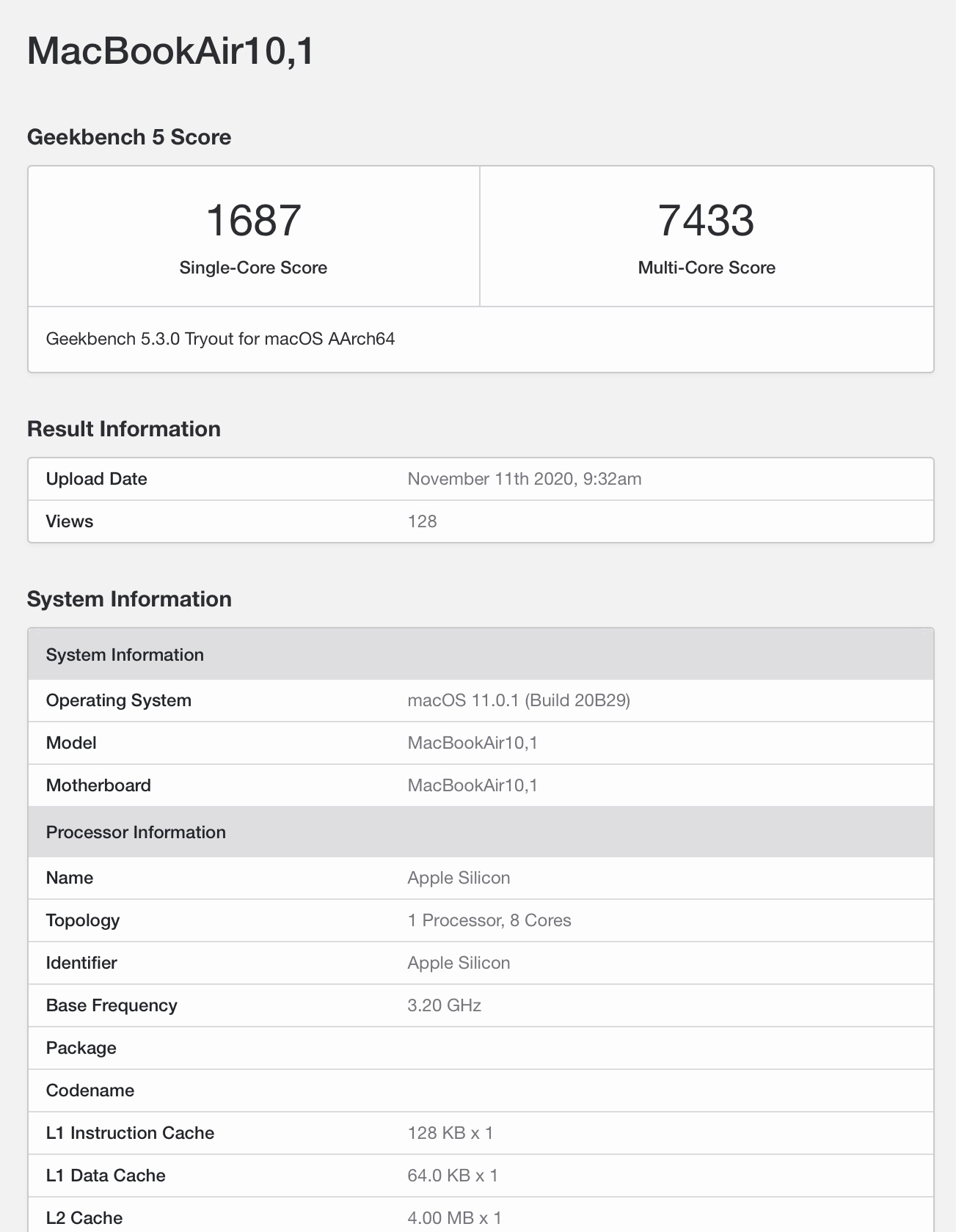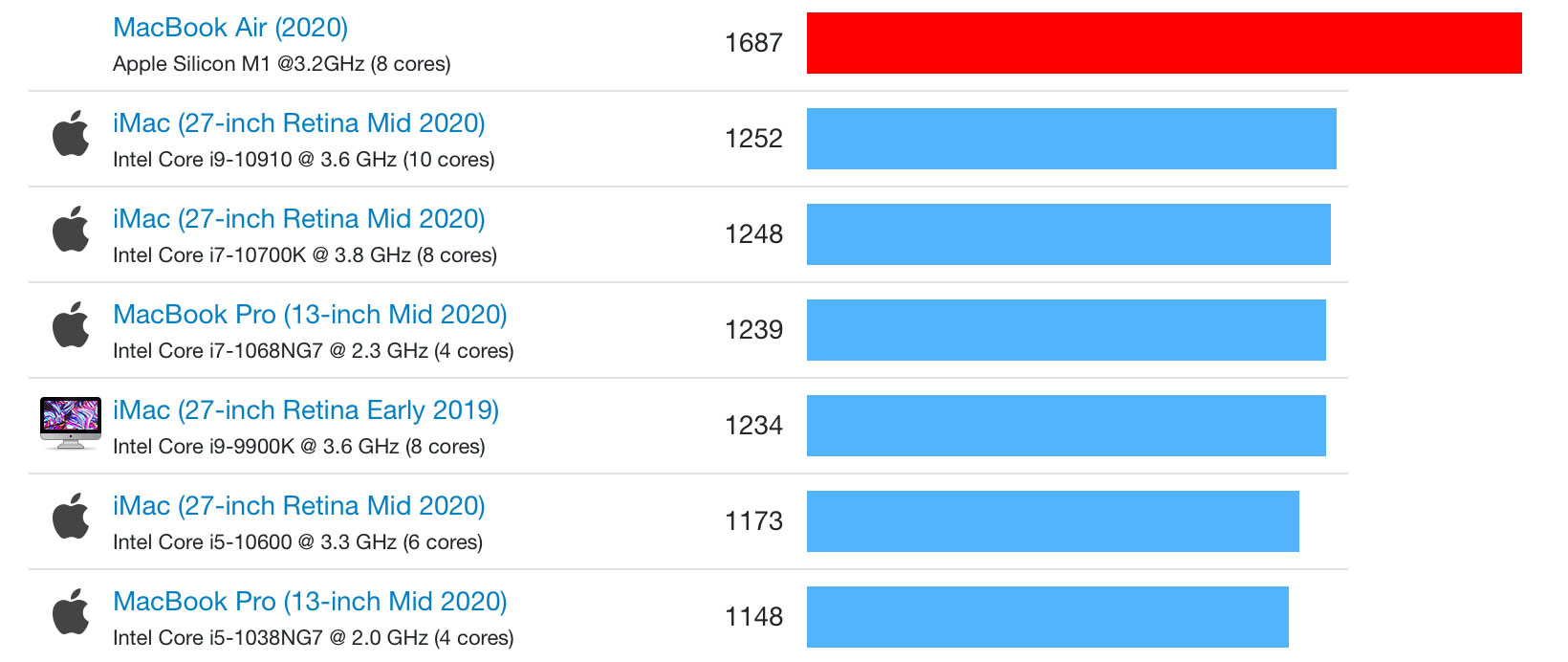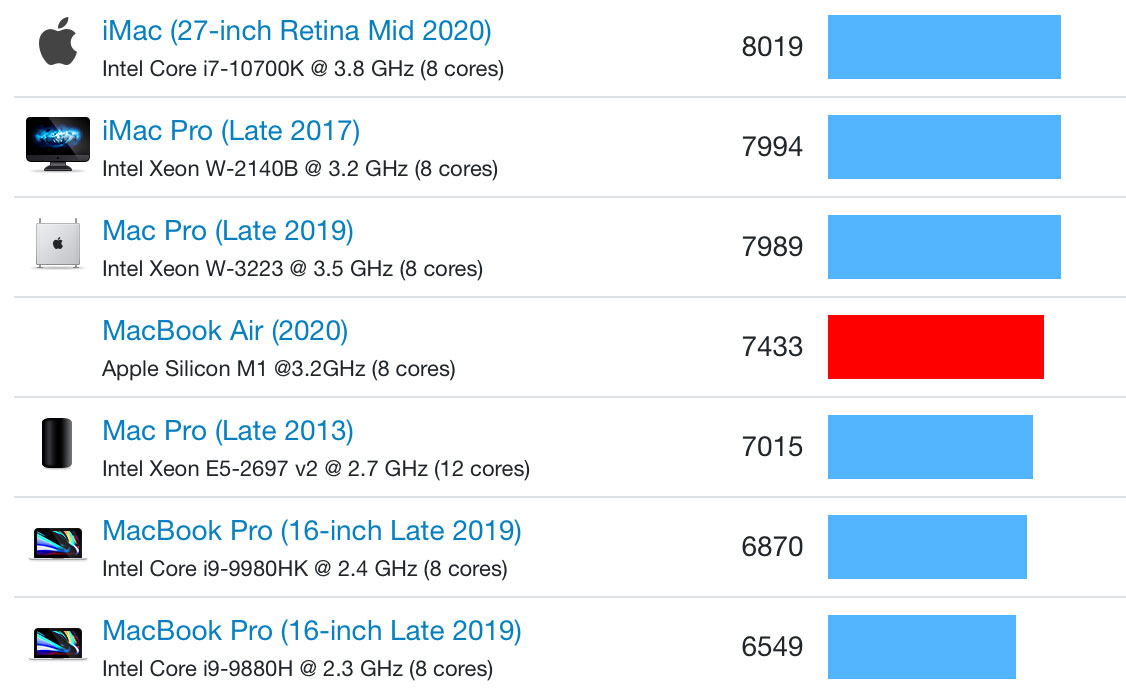![]()
Apple introduced the first MacBook Air, MacBook Pro, and Mac mini with M1 Apple Silicon chips yesterday, and as of today, the first benchmark of the new chip appears to be
showing up on the Geekbench site.
The M1 chip, which belongs to a MacBook Air with 8GB RAM, features a single-core score of 1687 and a multi-core score of 7433. According to the benchmark, the M1 has a 3.2GHz base frequency.
When compared to existing devices, the M1 chip in the MacBook Air outperforms all iOS devices. For comparison's sake, the iPhone 12 Pro earned a single-core score of 1584 and a multi-core score of 3898, while the highest ranked iOS device on Geekbench's charts, the A14 iPad Air, earned a single-core score of 1585 and a multi-core score of 4647.
In comparison to Macs, the
single-core performance is better than any other available Mac, and the multi-core performance beats out all of the 2019 16-inch MacBook Pro models, including the 10th-generation high-end 2.4GHz Intel Core i9 model. That high-end 16-inch MacBook Pro earned a single-core score of 1096 and a multi-core score of 6870.
Though the M1 chip is outperforming the 16-inch MacBook Pro models when it comes to raw CPU benchmarks, the 16-inch MacBook Pro likely offers better performance in other areas such as the GPU as those models have high-power discrete GPUs.
It's worth noting that there are likely to be some performance differences between the MacBook Pro and the MacBook Air even though they're using the same M1 chip because the MacBook Air has a fanless design and the MacBook Pro has an new Apple-designed cooling system. There's also a
benchmark for the Mac mini, though, and it has about the same scores.
The Mac mini with M1 chip that was benchmarked earned a single-core score of 1682 and a multi-core score of 7067.
Update: There's
also a benchmark for the 13-inch MacBook Pro with M1 chip and 16GB RAM that has a single-core score of 1714 and a multi-core score of 6802. Like the MacBook Air, it has a 3.2GHz base frequency. A few other MacBook Air benchmarks have surfaced too with similar scores, and the full list is available on Geekbench.
Article Link:
Apple Silicon M1 Chip in MacBook Air Outperforms High-End 16-Inch MacBook Pro





